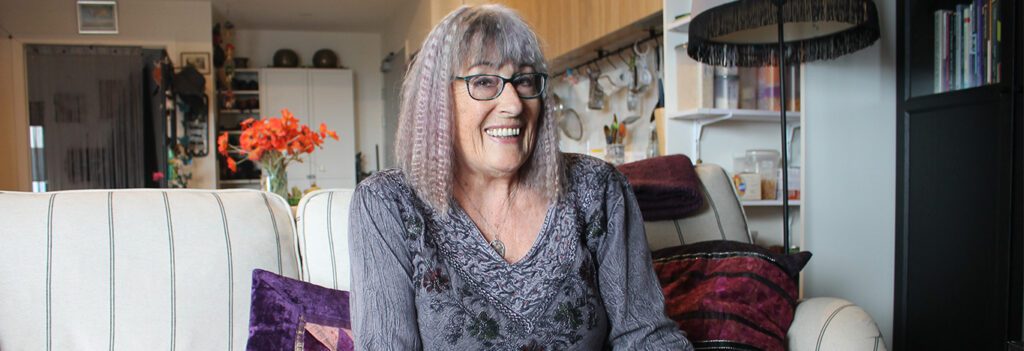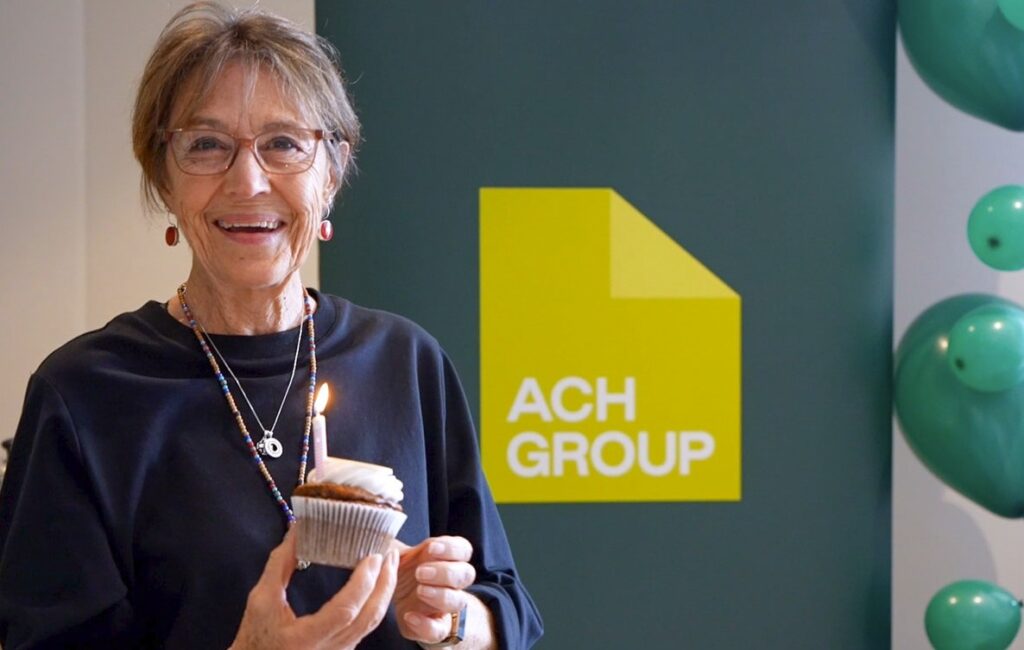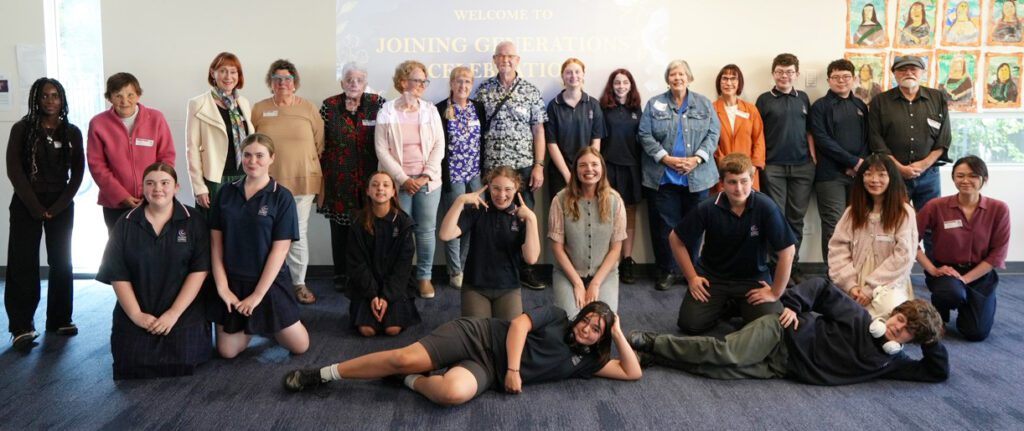Celebrating exceptional women
Celebrating Dr Jean Daniels (Jeannie) on International Women’s Day 2024
As we mark International Women’s Day 2024 (UN Women Australia, International Women’s Day), we are honoured to spotlight the remarkable journey and insights of Dr Jean Daniels (Jeannie).
With a life shaped by resilience, determination, and a commitment to feminist principles, Dr. Daniels embodies the spirit of trailblazing and advancing women’s rights through improved education opportunities, especially for older women.
We caught up with Jeannie at her Retirement Living apartment at Spence on Light, and asked her about her passion for education and her reflection on the International Women’s Day theme ‘Inspire Inclusion’.
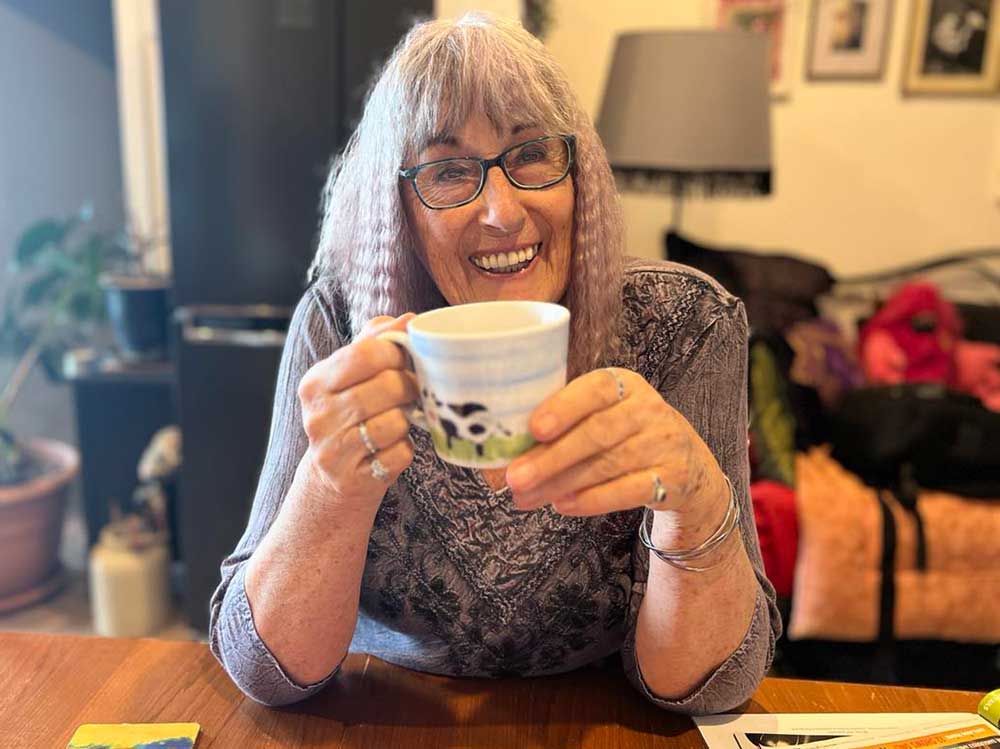
How would you introduce yourself?
My daughter would say ‘ageing hippy’! I’d say I’m a mature woman who – as with so many women of my generation – has experienced many joys and suffered much pain throughout her life, who loves her family but enjoys her own company, and who likes dogs, knitting and good cheeses (not necessarily in that order).
Can you tell us about your upbringing and early life experiences that have shaped who you are today?
Born and brought up in Scotland in a middle-class family, I was a post-war baby, and the youngest of three siblings. Mum and dad both worked and I was left to my own devices much of the time. I learned to read early, and enjoyed schoolwork, but my poor eyesight and shyness meant I always felt uncomfortable at school. I preferred my own company, I guess.
By high school I knew I was academically inclined, and I loved to study: teachers were supportive but there was little encouragement from my parents, and, when we moved to Australia I didn’t go back to school. I was fifteen. I was married by age 17.
I was a late starter in academia, having raised four children (much of the time as a single mother) before I finally had the opportunity to enrol in TAFE Women’s Education, a programme that taught me about women, about feminism, and about myself. Without this programme and the women who taught me, I would not have had the confidence to enter university as a mature-age learner. Feminist principles of living and of learning, shaped during that time, have influenced everything I have done since.
Who were some influential figures or role models in your life, and how did they influence your values and aspirations?
They are all women! If I go back to my childhood, my hero was Jane Goodall, because she, like I, loved animals, she was an independent woman and active in her support of the Tanzanian chimpanzees, and she was one of the few single women respected by the media and international community for the work they did, without needing the support of a man.
I also loved singing, and Helen Shapiro was my idol. I hoped to become famous as a pop singer by age 14, like her. That didn’t happen.
Later, Sheila Kitzinger, the natural childbirth activist and author, helped me to understand how well my body was designed to create, to birth, and to nurture new life, and she inspired me to encourage other women (and their partners) to learn, too, how remarkable we women are.
Germaine Greer obviously influenced my values, along with those of probably most women of my generation. Other than that, I return to the women teaching in the Women’s Education programme, whose influence on me has been, and remains, significant.
Negative role models were closer to home, unfortunately, and I always wondered what my mum might have achieved if things had worked out differently for her.
What are some of your proudest achievements or accomplishments, and what do they mean to you?
Without a doubt, my proudest achievement is gaining my doctorate at the culmination of many years of study. With it came a realisation that I was very much at home in academia. I’m sad that I had to wait so long to be in an environment where I felt I belonged, but once I had that doctorate under my belt there was no stopping me, and I worked in universities in South Australia, Victoria, England and Scotland. While this means so much to me, it meant nothing to my parents or siblings.
In fact, I’m not only the first-in-family to attend university, I’m still the only one to complete a university degree.
I’m proud too, of being a mother to my children. They are now adults, some with children of their own, and they mean the world to me.
Looking ahead, what are your hopes and aspirations for the future, both personally and professionally?
I returned to Australia from Scotland aiming to be closer to family and to find work locally. Soon after, my second youngest daughter died, aged just 34. That has knocked the wind out of my sails somewhat. My priority just now is focussing on helping her younger sister and myself move forward from this tragedy.
While I do miss academic work, that’s been put on hold for now, but I am getting some satisfaction from the Master of Human Rights study I’m undertaking with Open Universities Australia.
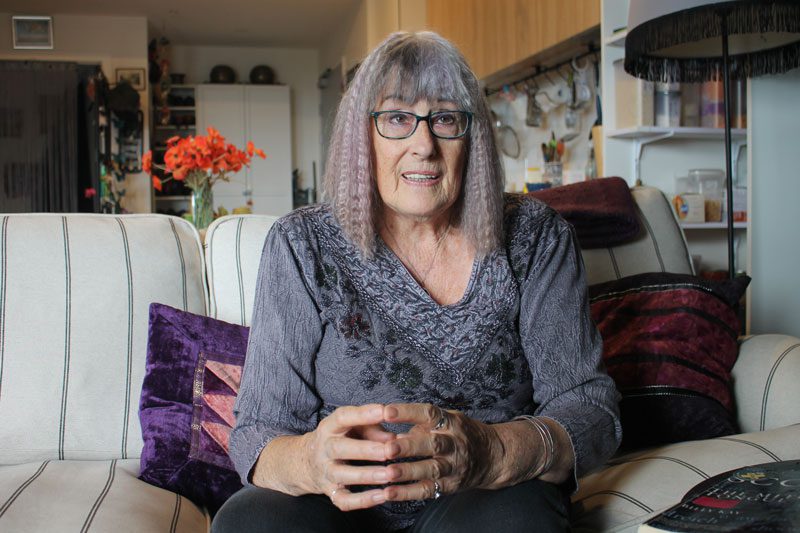
What initially drew you to your chosen field or profession, and how did your career journey begin?
My doctoral research was firmly focussed on women learners, explored through feminist theories, and I suppose that is my first ‘love’. Whilst studying, as a trained childbirth educator I was also teaching childbirth education classes, to provide women with knowledge and understanding of how their bodies work in pregnancy, labour, childbirth and post partum. I taught adult literacy, too, and English to migrants and refugees. These were mainly older women. I have always really liked teaching, or, to put it more appropriately, facilitating learning.
I was willing to take on any academic work, so moved into the area of academic development when work was offered. Again, I worked with many women, especially nurse practitioners and midwives. I like to think that I imbued a feminist approach into all my teaching, no matter what the gender of the students.
Can you describe some key milestones or significant moments in your career that have shaped your path?
Working in the field of higher education in different countries has been challenging, as I’ve had to learn the very different educational systems and standards that apply in each. These required quite steep learning curves!
My role at the University of the West of Scotland involved, almost on the first day, taking over the running of a postgraduate academic learning programme, and coordinating a team of colleagues. Luckily, I had wonderful collegial support, and I was even able to redesign the programme to incorporate international perspectives.
Getting articles published in international educational journals is not only significant, but essential, in an academic career. I’ve been fortunate to have had publications based on the work and the research I’ve undertaken. It’s great to see work you’ve written being quoted by other academics, especially ones you admire!
What are some of the most rewarding aspects of your work, and what keeps you motivated and passionate about what you do?
There are many aspects that made my work rewarding: cards and letters of thanks from past students; reading and marking assignments that show insight, understanding and high levels of intelligence based on what I’ve been teaching; and knowing that the students I’ve taught have progressed in their chosen careers.
I do believe that a good teacher is not only a passionate teacher, but also a motivated learner, and I enjoy the ongoing learning that comes with academic work.
Looking ahead, what are your aspirations and goals for the future of your career, and how do you envision yourself continuing to make a difference in your field?
I think I’m at a turning point career-wise, and certainly not ready to stop yet. Once my Masters is completed this might lead me to pursue human rights-based educational work and perhaps independent research on social issues concerning older women like myself. I’d particularly like to use my skills to help develop educational programmes focussing on women’s human rights. Will it make a difference? That will be for others to decide!
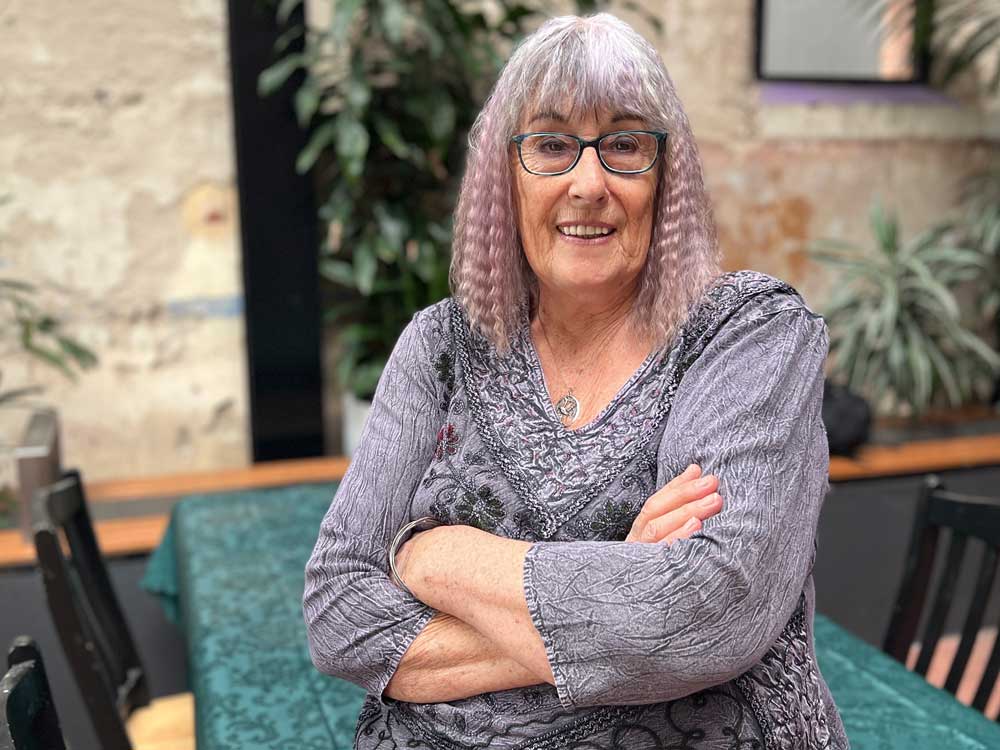
Reflecting on International Women’s Day
What are your thoughts on ‘Inspiring Inclusion’ and ‘Count Her In’?
It may seem like a contradiction, but I believe the way to develop ‘inclusion’ is to broaden the options rather than just include girls and women in what exists: what currently exists is still predominantly male-oriented. In relation to education, I see true inclusion of women and girls as inclusion in educational approaches that are designed to provide them opportunities and ongoing support structures, equal to those designed around the male model but that are specifically designed around women’s identified needs.
What do you believe are the most pressing challenges that women in education face today, particularly those in the realm of empowering mature age learners?
In relation to older women learners, I’m very concerned about the growing levels of poverty and homelessness amongst older women: it’s very hard to take up, or focus on, study when stressed over how to feed the family or if you’ll get an eviction notice tomorrow. And my doctoral research showed that older women do very much want to study, and to learn. Many – like myself – were denied the opportunity or were unable to complete their education and now want the chance to engage in learning. In fact, my research participants were absolutely determined they were going to be allowed to learn and develop the skills and knowledge they deserved.
As educators, what can women do to support mature learners?
There has been a tendency for women who have ‘made good’ to become protective of what they’ve gained, even to the point of preventing others from achieving what they have. While understandable, that has to change. Women need to support other women. Women educators are in positions where they can challenge social issues primarily affecting women, and they can do this through research, through publications (academic journals and less formal sources, for example, The Conversation), and through mentoring and supporting junior women colleagues.
Women’s issues can be made to feature more prominently in teaching, in both compulsory and post compulsory education settings, with women’s issues used more frequently as examples in course work.
My thoughts above fit with many of the themes of IWD 2024, but I feel these themes need to be developed into specific examples. and promoted using these examples. For example, how do we ‘forge women’s economic empowerment’? So, solid examples are needed, and then these actions must be driven by processes identified and shaped by women. IWD can certainly identify and begin to address some of the challenges women face, by providing guidance, strategies and information that can be taken forward effectively. As an information and promotional platform, IWD can definitely start the ball rolling.
Further reading and learning
From Jeannie’s perspective, education and learning are the key to addressing many of the sub-themes incorporated in the IWD 2024 campaign theme.
Older Women, Deeper Learning
For those women who have wanted to study at university, but are concerned they are too old, you are not! In fact, recent Australian-British research shows that older women use their accrued wealth of learning to actually achieve high levels of success in higher education.
Open Universities Australia
Open Universities Australia has a wide range of study topics and courses, and encourages potential students to enrol even without entry qualifications. Their webpage states: ‘No ATAR? No worries. You can still get into university. Our open door policy means you can get on the path to a uni qualification by starting with single subjects. Most don’t have entry requirements so you can enrol instantly.’
TAFE SA
TAFE SA Women’s Education provides skills – computing, literacy, and many others, that many women have not previously had the opportunity to gain. Units focussing on volunteering and advocacy are also offered.
Women-only classes learn in a supportive environment and confidence-building is key, helping women to make choices about their lives.
Grab a good book
Or if you just want to put your feet up and read about how wonderful we older women are, here’s a list of books with protagonists over 40 which have strong, inspirational characters and great stories. It’s ‘woman-lit’. I recommend ‘Thanks for the vodka’, by Harpie.
Blog
Visit our blog to find out more about lifestyle and social connection.
